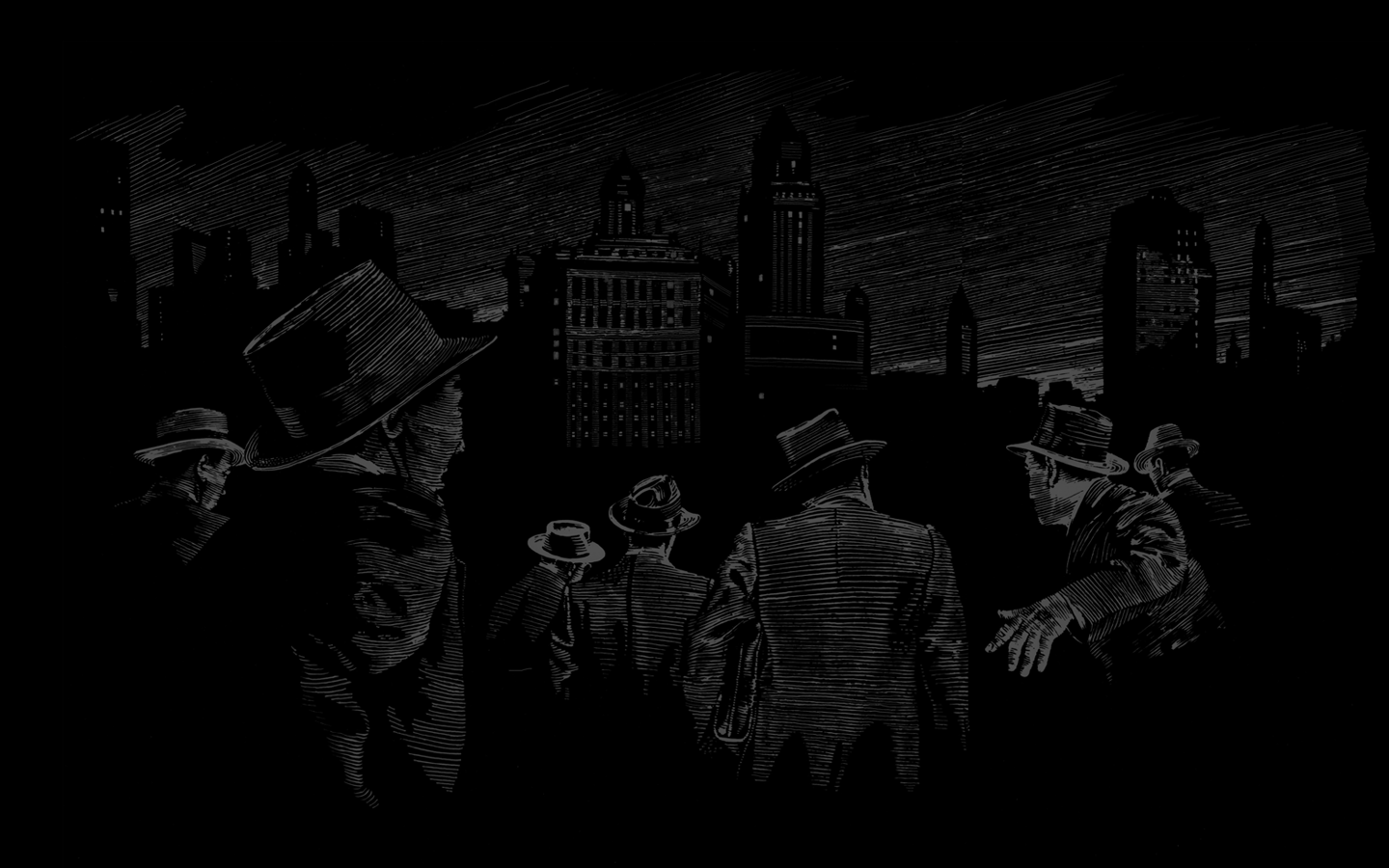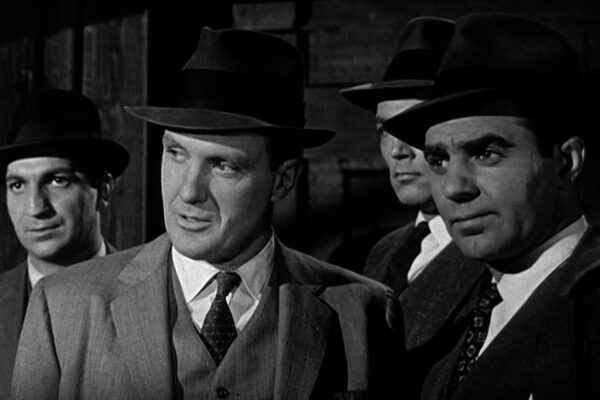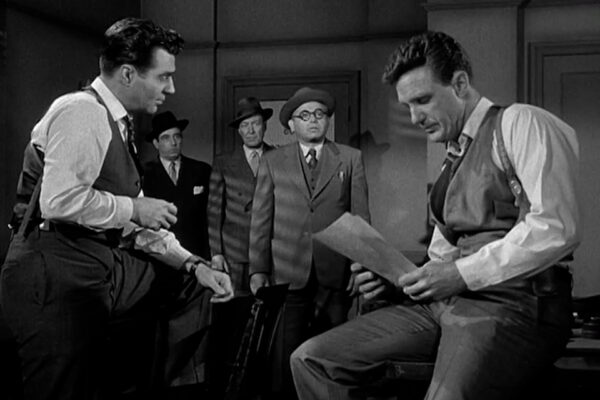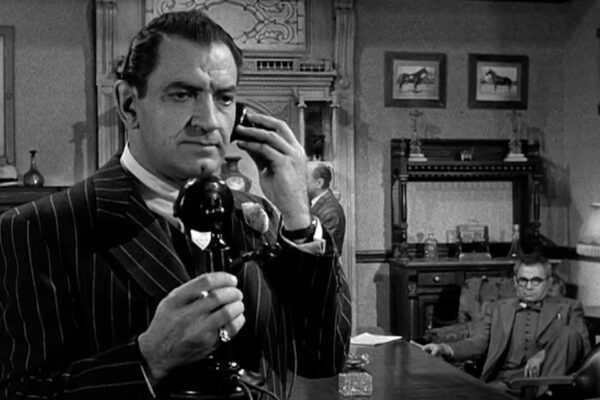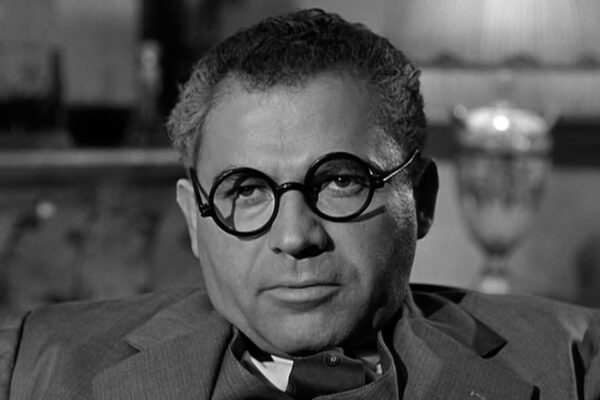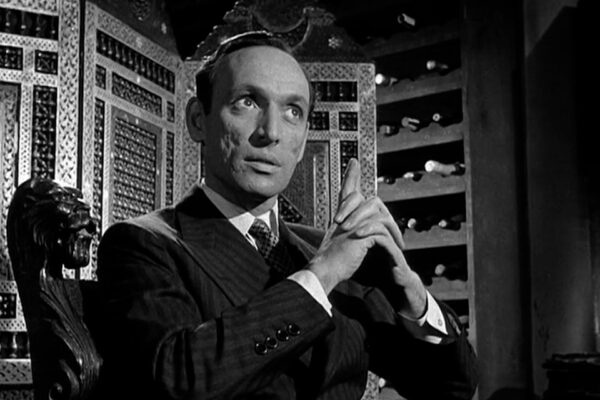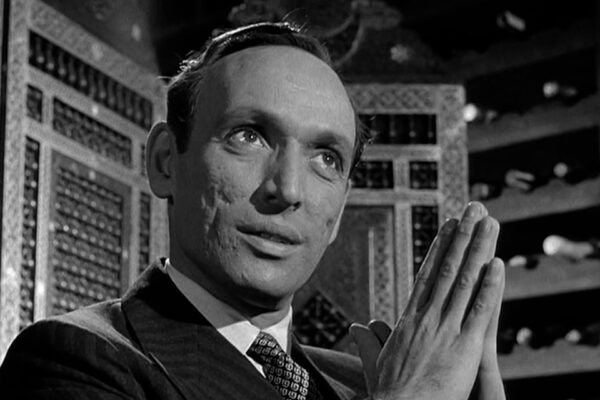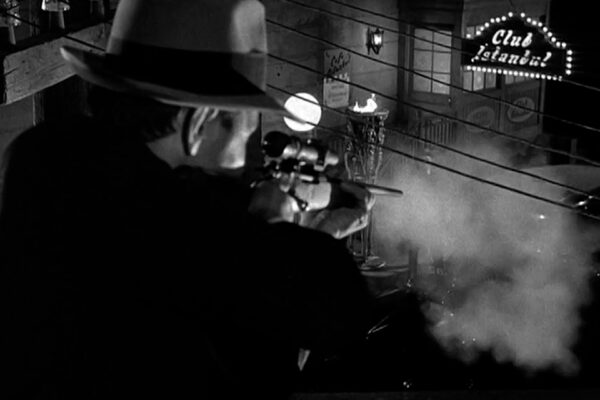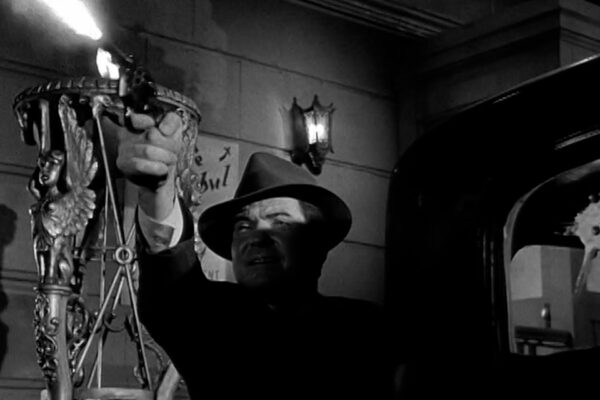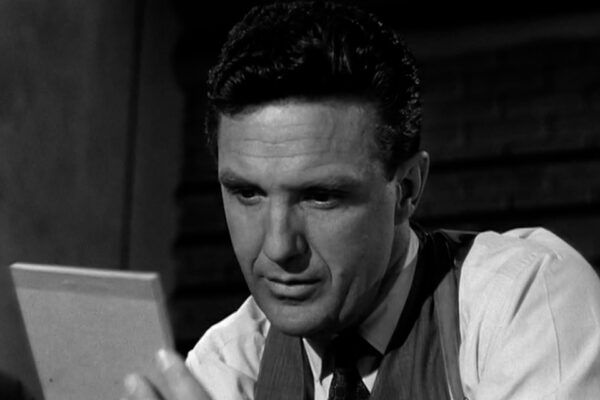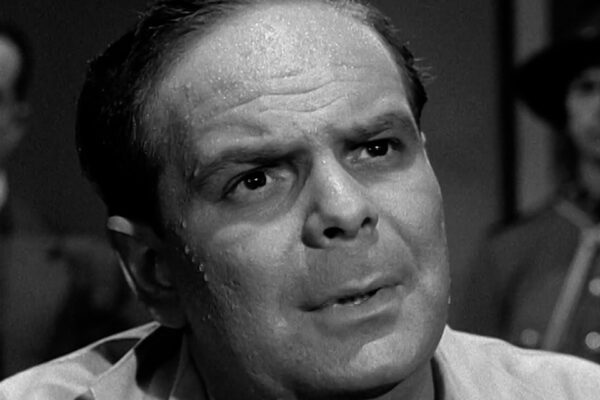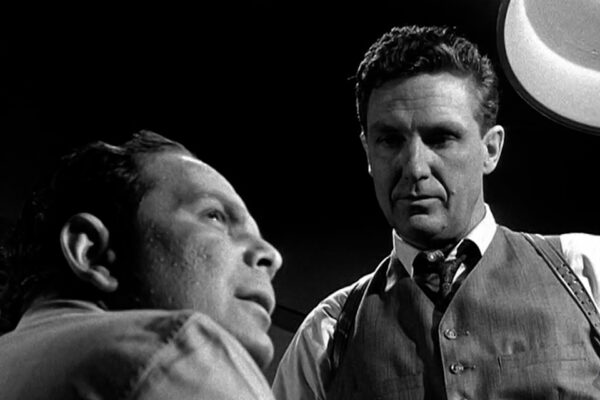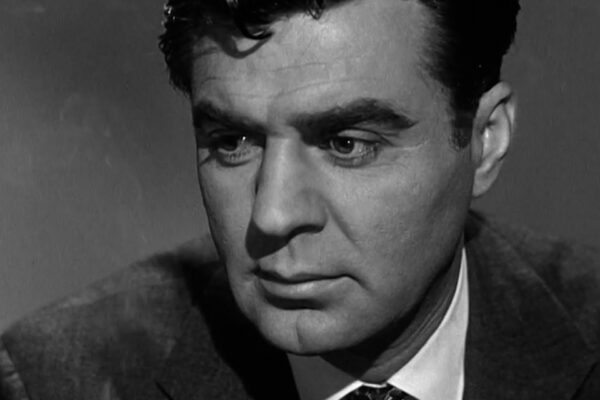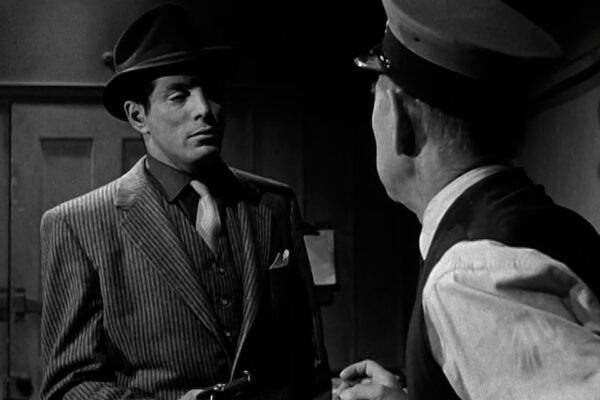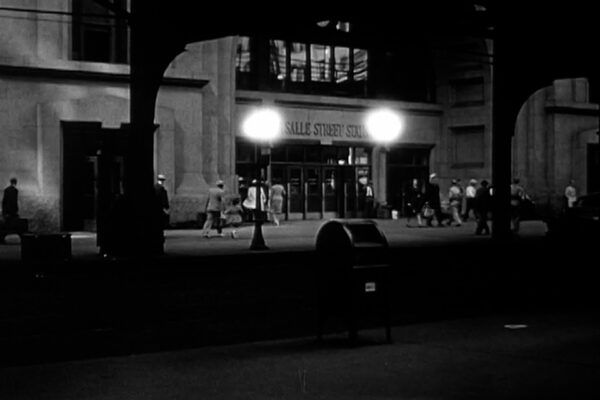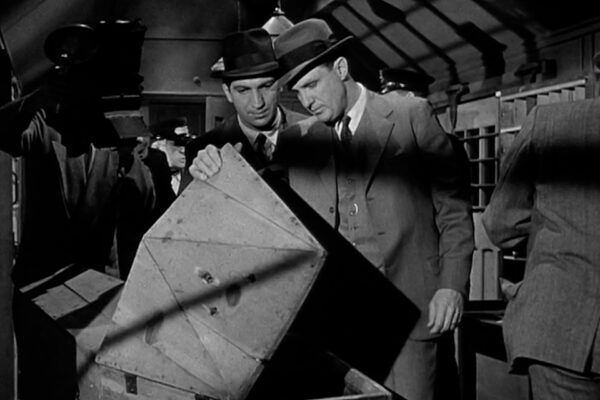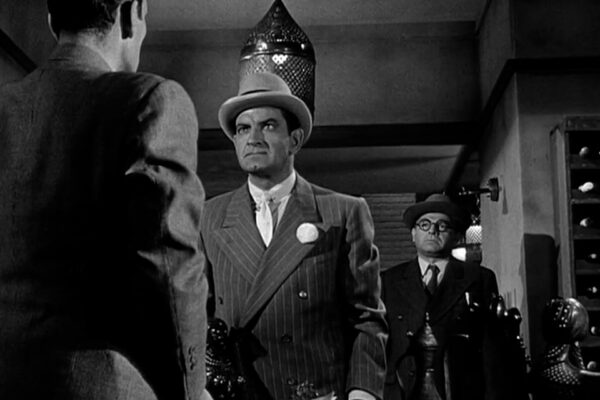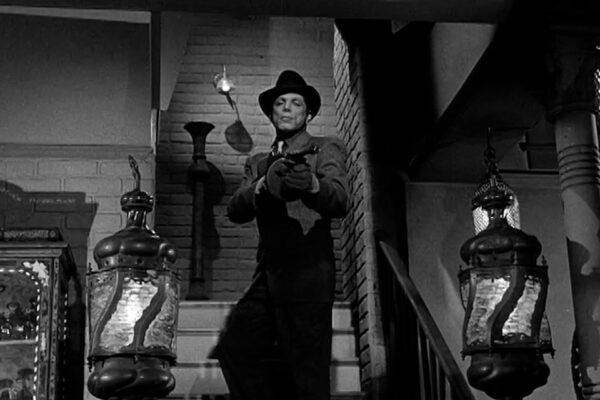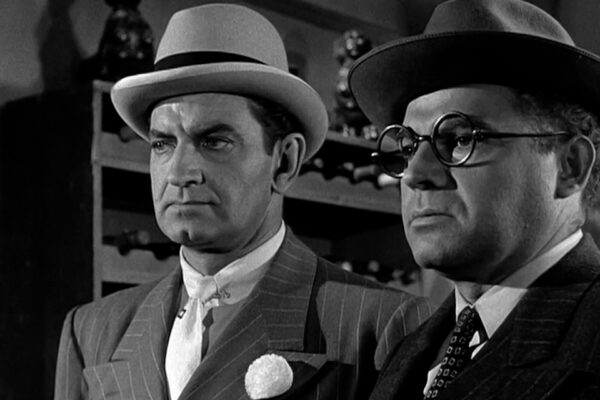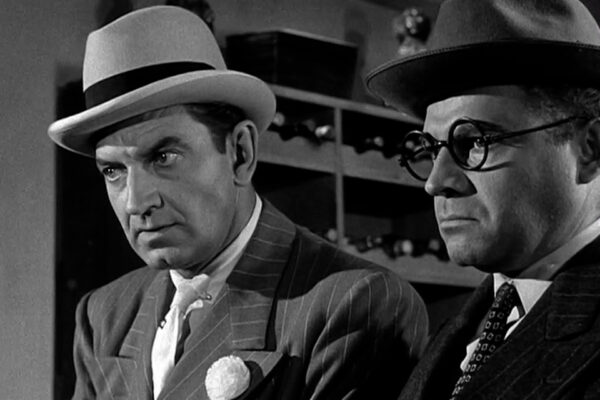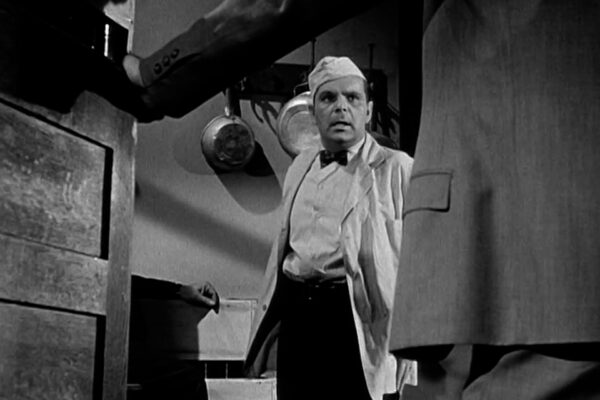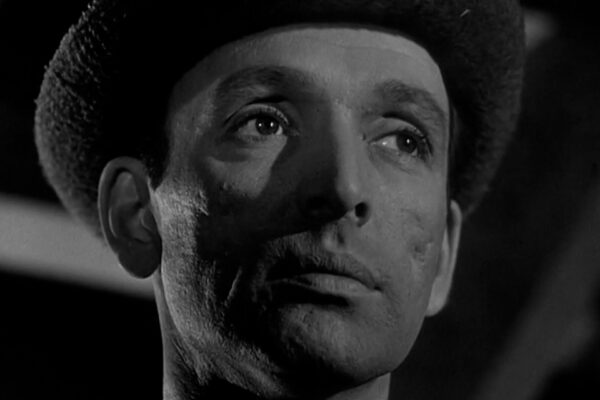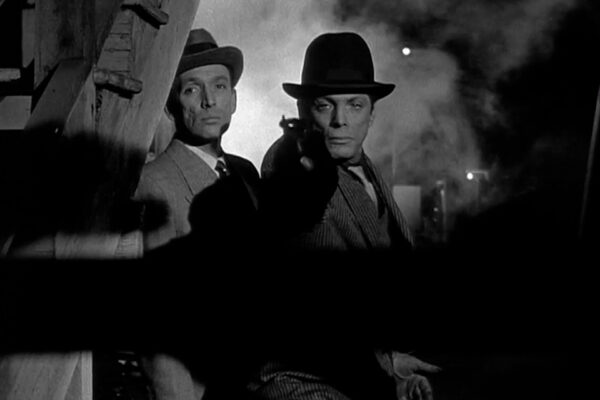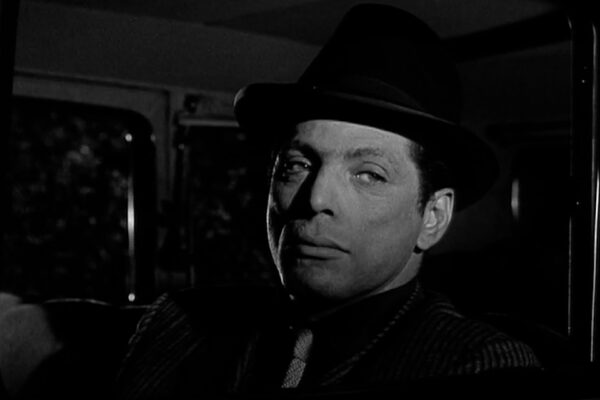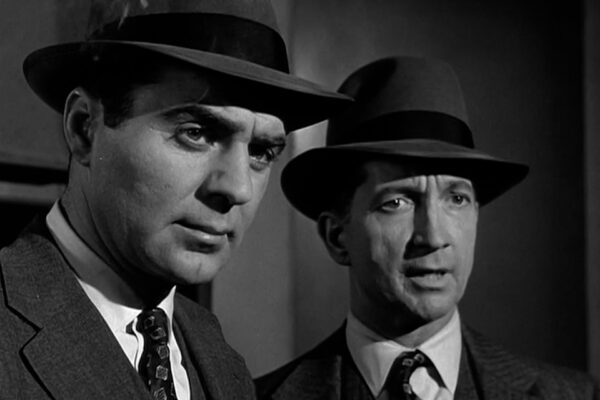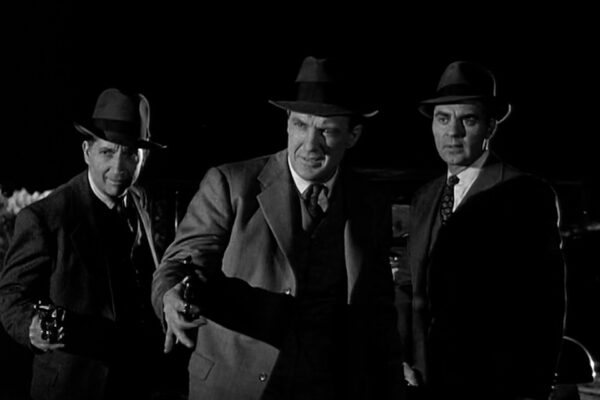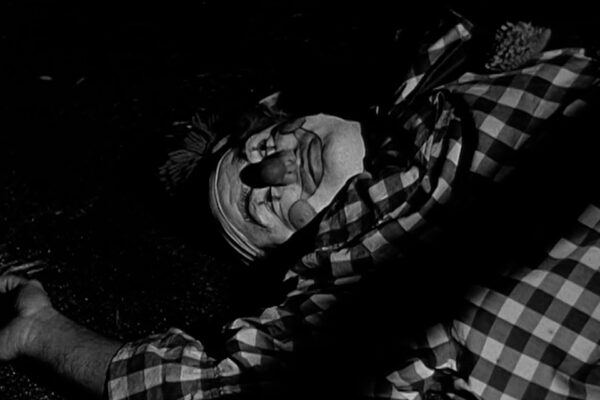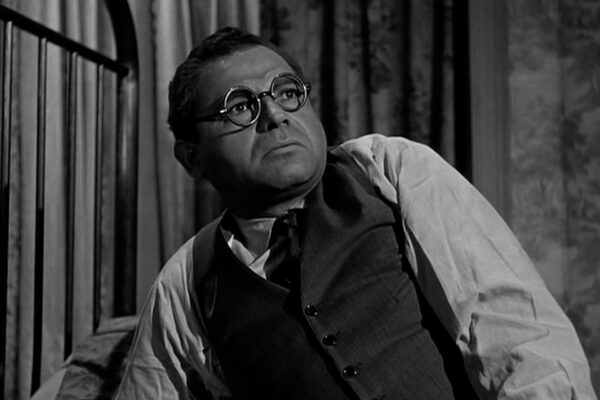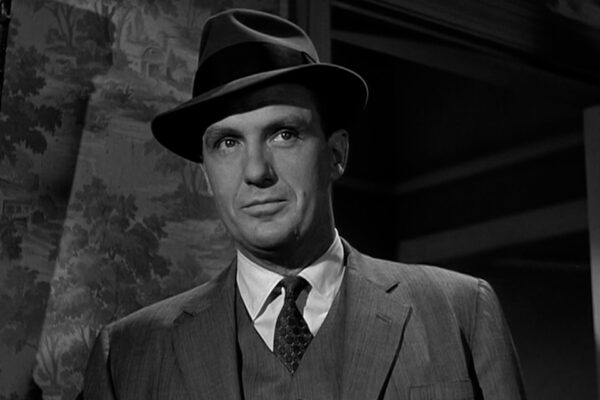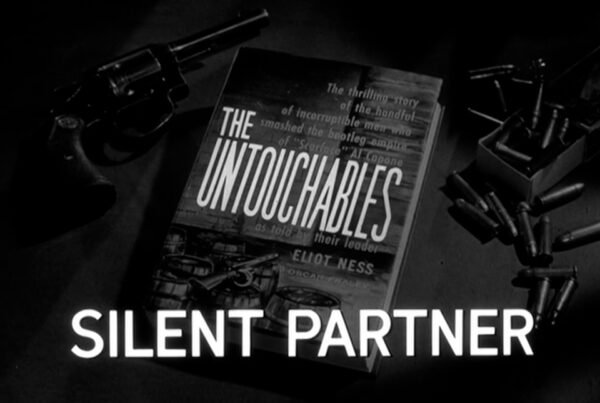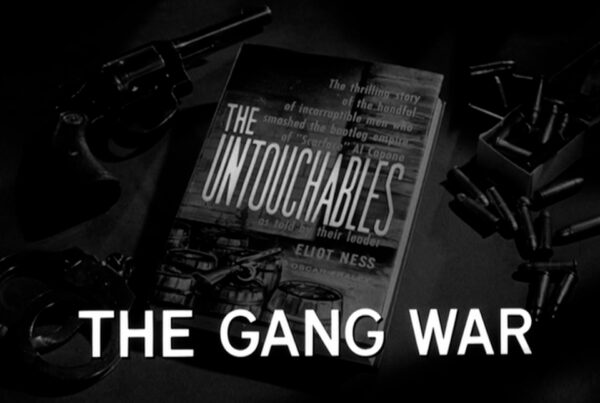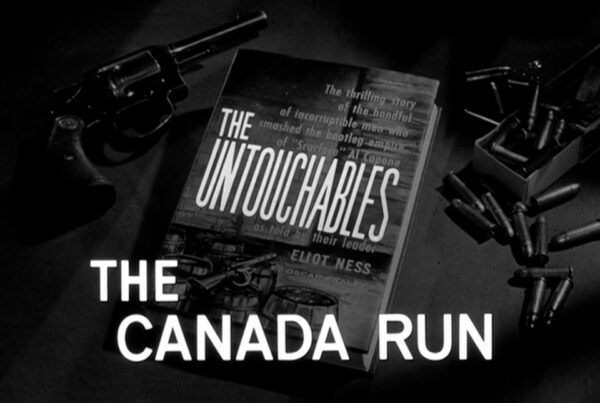THE SEVENTH VOTE
Airdates: May 18th and September 21st, 1961
Written by Richard Collins
Directed by Stuart Rosenberg
Produced by Alan A. Armer
Director of Photography Charles Straumer
Co-starring Bruce Gordon, Joseph Ruskin
Special Guest Star Nehemiah Persoff
Featuring George N. Neise and Allen Jaffe
”April 25th, 1932. While Al Capone was in Cook County Jail awaiting transfer to the Atlanta federal penitentiary to serve the remainder of an eleven-year sentence for income tax evasion, his lieutenants were gathered in the office above the cafe Montmartre. The meeting had been called by the heirs apparent to Capone’s underworld throne: Jake ‘Greasy Thumb’ Guzik, bookkeeper for the syndicate’s far-flung criminal empire and Frank ‘the Enforcer’ Nitti whose job it had been to see that Capone’s edicts were carried out. Their purpose: to resolve the chaos created by Capone’s empty chair.
Nevertheless, in the weeks that followed, the empire suffered a succession of savage and unexpected blows. For the first time since the St. Valentine’s Day Massacre, Chicago was rocked by gangland wars. With increasing regularity, Capone’s speakeasies were raided, his trucks hijacked and his breweries, which represented an investment of $100,000 each, smashed.”
With Al Capone sentenced to prison, his two top lieutenants, Frank Nitti and Jake Guzik, square off in the battle to determine the direction of the syndicate. Deadlocked, they reluctantly agree to a seventh vote that will break the tie and move the organization off-center. The only one powerful enough is legendary and now deported Kafka, residing in the Orient. Nitti and Guzik arrange for his re-entry into the States with an Alexander Stavro (Joseph Ruskin), a specialist in getting illegal aliens across the border.
”Alexander Stavro was having a champagne dinner at the Bellevue Hotel in Cleveland when he was picked up. As for the conflict between Nitti and Guzik, that was solved ironically when Guzik was sentenced to prison in July of the same year.”
REVIEW
Interesting, but redundant. This is another version of the very first episode, The Empty Chair, in case anyone had forgotten, with Nitti and Guzik at each other’s throats over the same issue. Winchell’s opening narration literally references the chair itself.
Moving more quickly than the original which mired down after the initial burst of machine-gun fire, it is, however, flawed in numerous ways. Kafka, supposedly some sort of legendary mobster isn’t seen until the end just before he’s killed in a car wreck – the same car wreck used in The Doreen Maney Story that should have never found its way into this series in the first place. At one point Nitti tries to have Guzik gunned down in the street but misses and Guzik threatens to do similar violence to Nitti, yet they go on about their business as though nothing had happened. While Gordon and Pershoff are nevertheless fun to watch, their exchanges are indistinct.
What redeems this installment into the fair category is its Hitchcockian feel and Joseph Ruskin, a frequent nasty, in perhaps his best role in the series. The lore built around Stavro and his particular brand of human trafficking is rather intriguing and worth an episode unto itself.
OBSERVATIONS
• Ness enters a brewery with a shotgun – a rarity.
• The return of Capone’s lawyer Archie Devlin, introduced here using footage with Capone from The Big Train, is another sly bit of subtle series continuity.
• At least one piece of stock footage correctly shows the right kind of locomotive for Canada.
• And speaking of trains, the clanging sound design of the rail yard is a great touch.
• When Ness gives chase to Kafka at the end, a continuity error occurs as he’s seen firing his weapon from the car, but the sound design and editing don’t match. Later, he’s only seen returning fire only once fired upon.


